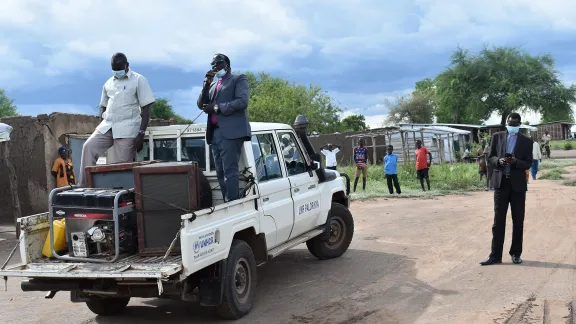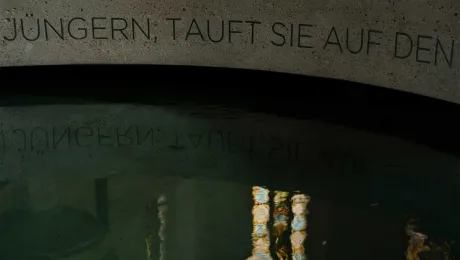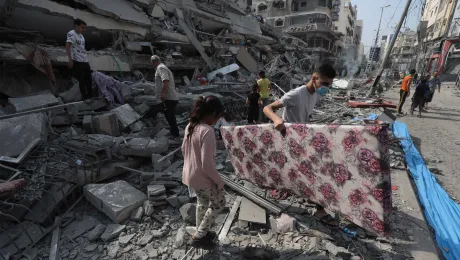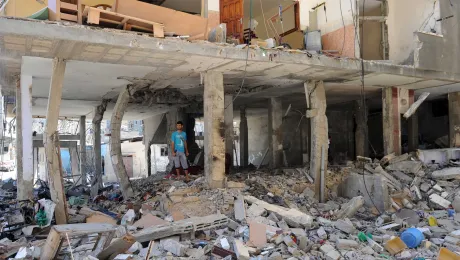
The Rt. Rev. Emmanuel Murye, Bishop of the Anglican Diocese of Kajo â Keji, South Sudan, talks to South Sudanese refugees in Uganda during in a road drive campaign with LWF to inform them about COVID-19 and hygiene measures. Photo: LWF/ K. Logi
Webinar explores "Dialogue despite distance" in exceptional times
(LWI) - "COVID-19 has become something like a magnifying glass that has exposed the state of some of the seams that hold together the fabric of human life and relationships: economic, social, ecological, intergenerational, between genders, and interfaith," the Lutheran World Federation (LWF) general secretary Rev Dr. Martin Junge said at a webinar on interreligious dialogue and the challenges of COVID-19.
The pandemic "has shown what holds and carries, the seams that resist stress, but also exposed what does not hold and carry, and where the seams are therefore at risk to burst."
COVID-19 has shown what holds and carries, the seams that resist stress, but also exposed what does not hold and carry, and were the seams are therefore at risk to burst. – Rev. Dr. Martin JUNGE, LWF General Secretary
In the webinar, "Dialogue despite distance," representatives from different faith communities shared how they have used interreligious dialogue to address the challenges of the COVID-19 pandemic – from rising hate speech and misinformation to xenophobia and violent conflict. The webinar was hosted by the King Abdullah bin Abdulaziz International Centre for Interreligious and Intercultural Dialogue (KAICIID), which also presented their new publication "Interfaith Dialogue in Action: A Guide for Dealing with COVID-19."
Focus on what unites us
The pandemic and the measures taken to contain it pose particular challenges to faith communities. As most live around joint worship, the inability to come together has consequences for people's well-being. "We never closed our mosque for Friday prayer or Ramadan," said Imam Sheikh Mohammad Ismail, Muslim Chaplain at the University of Sheffield. "Now, we had to adapt." Likewise, all religions have had to adapt the usual celebration of major holidays this year.
"People just want their lives back, and we need to guard against that," said Prof. Katheryne Marshall of the Berkley Center for Religion, Peace, and World Affairs at Georgetown University. "We need to find the energy and the space to learn from this."
Religious communities have also needed to guide how to continue religious rites, especially funeral rites, combined with quarantine and personal safety measures. In some regions, the pandemic has led to increased xenophobia and distrust towards communities perceived as spreading the virus or suspicion against the possible vaccines.
Guard integrity of relations
"Faith communities are still the most prepared in this situation. Be it supporting people in personal loss, or personal crises – they have the expertise," said Bani Dugal, Principal Representative of the Bahá'í International Community to the United Nations.
"I believe we as communities of faith are in a particularly critical moment to dedicate much attention to the relationships that hold us together across different faiths," concluded LWF general secretary Junge. "Because the overall tendency, now exacerbated by COVID-19, is fragmentation, we shall focus on what opposes this trend, countering all that wants to pull us apart from one another. Faith is about wholeness of life and wholeness of relations."
Junge asked faith actors to strengthen resilience, nurture and preserve relationships, ecumenical and interfaith level, and advocate for the marginalized, especially regarding possible treatments and vaccines.
LWF/ C. Kästner


